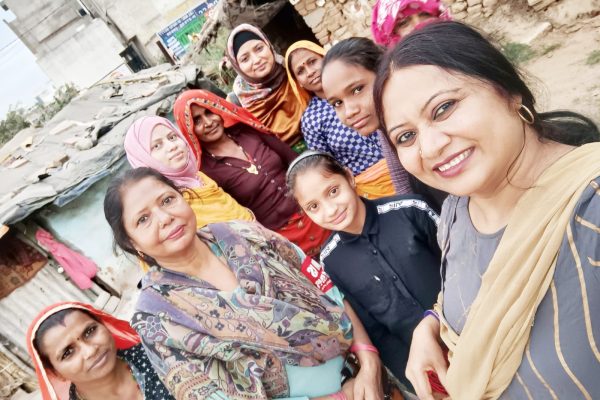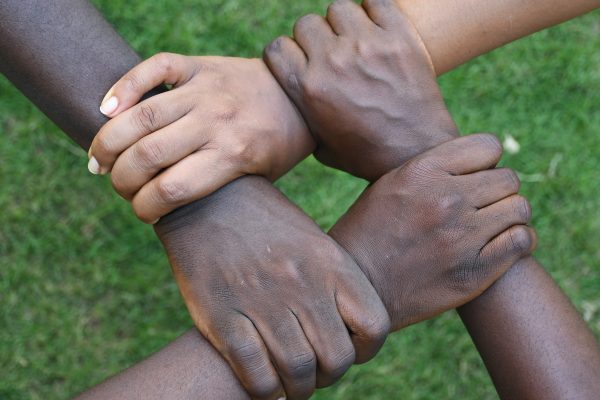Everywhere we turn, we see a crisis.
The refugee crises, economic crises, health crises, and war. Crises that are affecting communities, countries, and continents. But there is one crisis that does and should affect us all – the climate crisis. This is the one crisis that affects each and every one of us – as inhabitants of this beautiful planet. It is increasingly a social concern, affecting our fellow brothers and sisters in humanity, globally.
Almost daily, we hear and read about youth dying prematurely from cancer caused by air pollution, entire ecosystems and indigenous communities endangered by deforestation and plastic pollution. Populations suffering from the dangerous consequences of global warming, being displaced following cyclones, and hurricanes, making their home uninhabitable. Unfortunately, this situation is only going to worsen.
As it stands, debates surrounding the environment are contentious, more so, in the current climate (no pun intended). Deep-rooted issues such as climate change and environmental justice cause much controversy, they are politically and economically divisive.
Those who have the ability to enact change, such as policymakers and CEOs of large corporations are often politically and financially motivated to act in their own interests, rather than for the betterment of society. This poses a number of questions, are we, as the grassroots, aware that the environmental issue is a social concern? Should we not, therefore be more aware of the decisions made about the conservation and protection of our environment, and how they impact us? As inhabitants and residents of this earth, shouldn’t we, as intellectual human beings, band together and do whatever it takes to protect our home?
On a deeper level, this entire topic of the environment is vast and often overwhelming. Hearing about how climate change is causing the decline of the planet, and our home as we know it, can incite fear, and anxiety. Every day, news stories erupt, about environmental disasters, from oil spillages, bushfires, and drought. These issues are often desensitised with the mentality that “it doesn’t affect us”. This is far from the truth. Although we may not directly be able to alleviate these issues – we may not necessarily have the power to – what we can do is become more aware of the things that are happening and provide relief to those people who are disproportionately suffering the consequences. This should give us the motivation enough to do our part – no matter how small.
With several factors contributing to the crisis – amongst the various types of pollution (air, water, soil), global warming, and deforestation, it can be easy to get tied up in its multi-faceted nature. Especially since the more we delve into understanding these issues, the more complex they seem to be, involving numerous industries, institutions and communities.
Simplifying the environmental crisis also doesn’t do it justice; there is just too much at stake.
So, what should we do?
More often than not, policies around how environmental crises are dealt with, need to change. However, we may not be in the appropriate positions of power and influence to affect such change. What we do need to do is look within and around our direct proximity: what needs to be done? Who can we help? How can we help conserve and protect our immediate environment? Which organisations and community groups can we get involved with that are doing their part?
Although primarily focused on helping the most vulnerable and disadvantaged members of society, Who is Hussain teams around the world also recognise the importance of protecting our planet. Inspired by Hussain ibn Ali, who not only showed compassion to those around him but also to his surroundings, teams extend their activity to preserve the environment. Their mission to show kindness towards the environment and contribute to alleviating the crisis in whatever way possible, over the years, has included activities such as
- Cleaning up public beaches and parks in Brighton, UK, Auckland, New Zealand, Maryland, USA
- Planting trees to combat global warming in Mombasa, Kenya, Miami, Florida, and Karachi, Pakistan
- Raising awareness of the issue through appropriate initiatives – The team in Kashmir in collaboration with Jammu & Kashmir Society for Trekking and Environmental Preservation went on a hike to raise awareness about climate change and the importance of preserving our environment. On reaching the summit, they took the initiative to clean up the campsite
Through these activities we see that small collective efforts can make an impact – perhaps not to alleviate the crisis as a whole, but to the local surroundings it makes all the difference.
Another simple way to take action is to join environmental campaigns, such as the #beatplasticpollution campaign for World Environment Day this year. Taking place on June 5th, this year’s campaign serves as a reminder of the impact of individuals’ actions on plastic pollution and raises awareness of the serious threats to numerous ecosystems. This is just one opportunity of many available for individuals to support activities related to the environmental crises – if they have the means and capability to do so.
Often, galvanising to alleviate the effects of climate change, plastic pollution and the destruction of ecosystems, for example, can be seen as a position of privilege. Taking up resources such as time, and in some cases, money, there are populations around the world who aren’t as privileged to prioritise environmental action. For so many communities living in developing countries, and those who are impoverished and vulnerable, priorities lie in striving to provide the basic essentials for themselves and their families – merely to survive.
Injustice and inequities in the social systems and structures filter into and create imbalances in how to solve crises, such as the environmental crisis, especially when millions are struggling to access clean water, food and basic medical treatment. Thus, it seems, conserving our planet and creating a socially just and equitable system are not mutually exclusive. Moreso, it is these communities that are disproportionately affected by environmental disasters, who have had the least hand in the detrimental impact, however, they are the most exposed to the disastrous effects of it. This further contributes to the complexity of the crisis, as one that is based on injustice and inequity.
Like others, this particular crisis cannot be solved overnight – it will take years, perhaps decades to come to a viable solution. One that protects our planet, as well as the rights of humankind. It certainly would be wishful thinking that we can change policies, halve global emissions by decreasing the use of fossil fuels within the next seven years and achieving net zero in the next 27. Especially considering the complexities of sustainability and the numerous global crises. We must, however, remain optimistic and ensure that on a grassroots and community level, we are doing our utmost to make positive changes in our day-to-day living. This could be by utilising reusable cups and water bottles, eating less meat, reusing and recycling appropriately, and planting trees – doing whatever we are able to, on a smaller scale, will not only influence those around us but make a collective impact.
All is not lost, however. There is already so much positive action taking place.
- Renewable energy growth – The use of renewable energy sources continued to grow in 2022, with solar and wind power becoming increasingly cost-competitive with fossil fuels. This shift towards renewable energy is critical for reducing greenhouse gas emissions and mitigating climate change.
- Ocean conservation efforts – There were several positive developments in ocean conservation in 2022, including the creation of several new marine protected areas and increased efforts to reduce plastic waste in the ocean.
- Biodiversity protection – Several countries made significant efforts to protect biodiversity in 2022, including the creation of new national parks and protected areas. These efforts are critical for preserving endangered species and ecosystems.
While discussions continue to be hampered at a political level, we, as the grassroots, community organisations, must act and do our part to protect our home. Ultimately, we can only hope that the rest of humanity, especially those in positions of power and influence, pulls through in its time of need and morality prevails.




